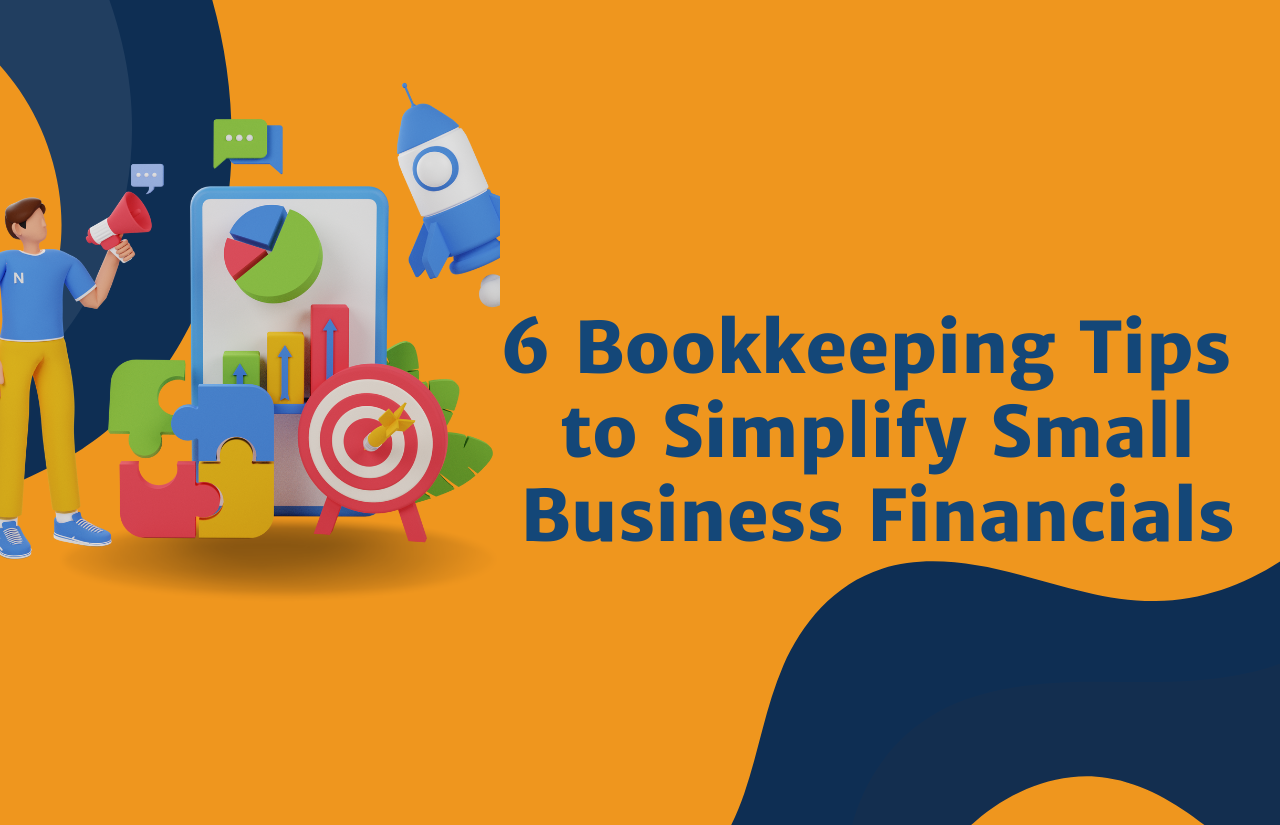If you own an ecommerce business, then you must understand how crucial bookkeeping is.
But let’s explore the process, the pros and cons, and the guide on how to DIY in more detail.

Ecommerce bookkeeping is the process of recording, classifying, and summarizing financial transactions of an ecommerce business.
It is essential for keeping track of the financial health of the business and making informed decisions based on accurate financial data.
Here are some reasons why bookkeeping is important for ecommerce:
Tax compliance:
When coming to tax compliance, proper bookkeeping is essential for complying with tax laws and regulations. Keeping accurate records through bookkeeping makes it easy to prepare and file tax returns on time.
Business analysis:
By keeping proper books and ensuring their cleanliness, you can secure valuable financial data that will enable you to analyze your business’s performance effectively.
It helps ecommerce business owners to identify areas that need improvement and make informed decisions based on financial data.
Cash flow management:
Bookkeeping helps ecommerce business owners to manage cash flow effectively.
By tracking income and expenses, bookkeeping provides insights into the cash flow situation of the business, making it easy to plan for future expenses.
Financial forecasting:
Ecommerce business owners make accurate financial projections, thanks to Bookkeeping.
With accurate financial data, it is easier to forecast sales, expenses, and profits, helping businesses to plan for the future.
Business valuation:
If you want to determine the value of an ecommerce business, bookkeeping is a must!
Calculating the worth of the business becomes easier by using accurate financial data, which helps in attracting investors or selling the business.
Best Practices For Ecommerce Bookkeeping – Beginner’s Level
Now that we know why bookkeeping is important for ecommerce businesses, let’s look at some best practices for ecommerce bookkeeping.
Before we continue, here is an overview of the most common mistakes.
Separate business and personal finances:
This is one of the most important best practices for ecommerce bookkeeping. Small ecommerce business owners should open a separate bank account for their business and use it exclusively for business expenses and income.
his makes it much easier to track financial transactions accurately and also helps to avoid any confusion or errors when it comes to tax time.
Use accounting software:
As an ecommerce business owner, you have a lot on your plate, and it can be challenging to stay on top of bookkeeping tasks.
Using accounting software, such as QuickBooks or Xero, can help you automate many of the bookkeeping tasks, and provide you with accurate financial data in real-time.
Accounting software can also help you generate financial reports, track expenses, and prepare for tax season.
Keep records of all financial transactions:
Keeping detailed records of all financial transactions is crucial for ecommerce bookkeeping.
This includes keeping receipts, invoices, and bank statements, and recording all transactions accurately in your accounting software.
By keeping detailed records, you can ensure that your financial data is accurate and up-to-date, and also make it easier to identify any errors or discrepancies.

Reconcile accounts regularly:
Regularly reconciling your accounts is another essential best practice for ecommerce bookkeeping.
This involves comparing your accounting records to your bank statements to ensure that they match. Reconciling your accounts regularly can help you identify any errors or discrepancies, and ensure that your financial data is accurate.
Stay organized:
As an ecommerce business owner, it’s important to stay organized when it comes to bookkeeping.
Organize your financial records and record all transactions accurately and promptly.
By staying organized, you can make bookkeeping less stressful and time-consuming, and ensure that your financial data is accurate and up-to-date.
Seek professional help:
Finally, if you’re struggling with ecommerce bookkeeping, don’t be afraid to seek professional help.
A bookkeeper or accountant can help you manage your finances, provide advice on financial planning, and help you navigate tax laws and regulations.
Working with a professional can help you save time, reduce stress, and ensure that your financial data is accurate and up-to-date.
But, more on this topic you can learn more from our article: Bookkeeping services vs DIY bookkeeping.
In summary, implementing these best practices can help small ecommerce business owners improve their bookkeeping practices, and ensure that their financial data is accurate and up-to-date.
By staying organized, using accounting software, and seeking professional help when needed, ecommerce business owners can make bookkeeping less stressful and more manageable.

Examples Of Succesful Ecommerce Brands Using Bookkeeping Best Practices
Here are some examples of successful ecommerce brands that have used bookkeeping to their advantage:
Warby Parker:
The eyewear retailer in question has garnered noteworthy acclaim for their exceptional financial management. This is primarily due to their meticulous and comprehensive bookkeeping practices, which have been acknowledged as exemplary by industry experts and peers alike.
Warby Parker’s founders have emphasized the importance of keeping detailed financial records, which has helped them make strategic decisions and secure funding from investors.
Allbirds:
As a sustainable footwear brand they practice strong financial management, which includes thorough bookkeeping practices.
Allbirds has used financial data to make strategic decisions, such as expanding its product line and opening new retail stores.
Glossier:
Glossier’s founders have stated that they keep detailed financial records and use financial data to make strategic decisions and secure funding.
They maintain strong financial management as a sustainable footwear brand, which entails meticulous bookkeeping practices.
Outdoor Voices:
The financial management of this activewear brand has been commended for its meticulous bookkeeping practices, which have contributed to its strong financial position.
Outdoor Voices has used financial data to make strategic decisions, such as expanding its product line and opening new retail stores.
These successful ecommerce brands demonstrate that bookkeeping is essential for financial management and strategic decision-making. By keeping detailed financial records and using financial data to inform decisions, ecommerce businesses can achieve long-term success.
Conclusion
In conclusion, ecommerce bookkeeping is essential for the financial health of an ecommerce business. It provides valuable financial data that can be used for tax compliance, business analysis, cash flow management, financial forecasting, and business valuation.

By following best practices for ecommerce bookkeeping, business owners can ensure that they have accurate financial data to make informed decisions.



